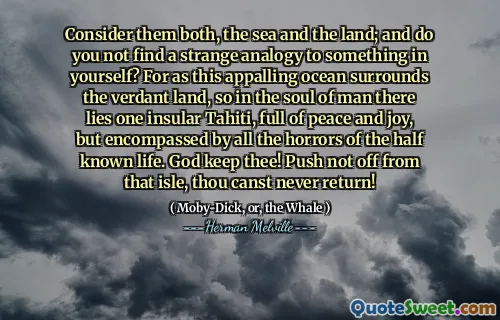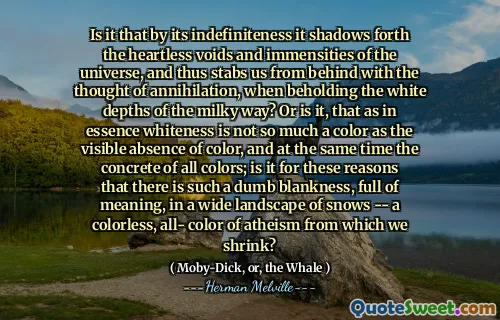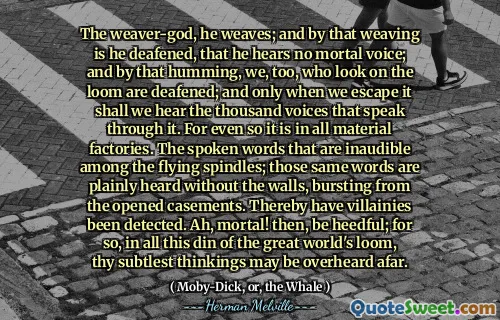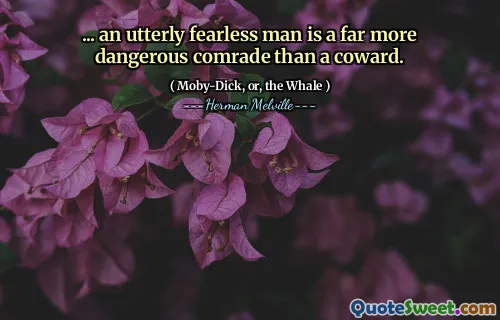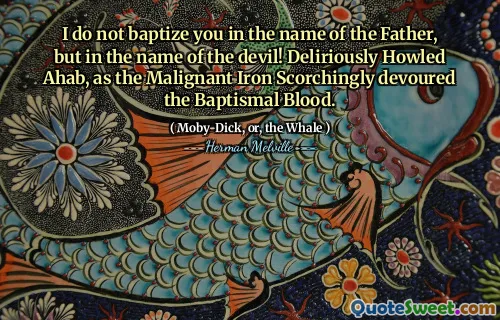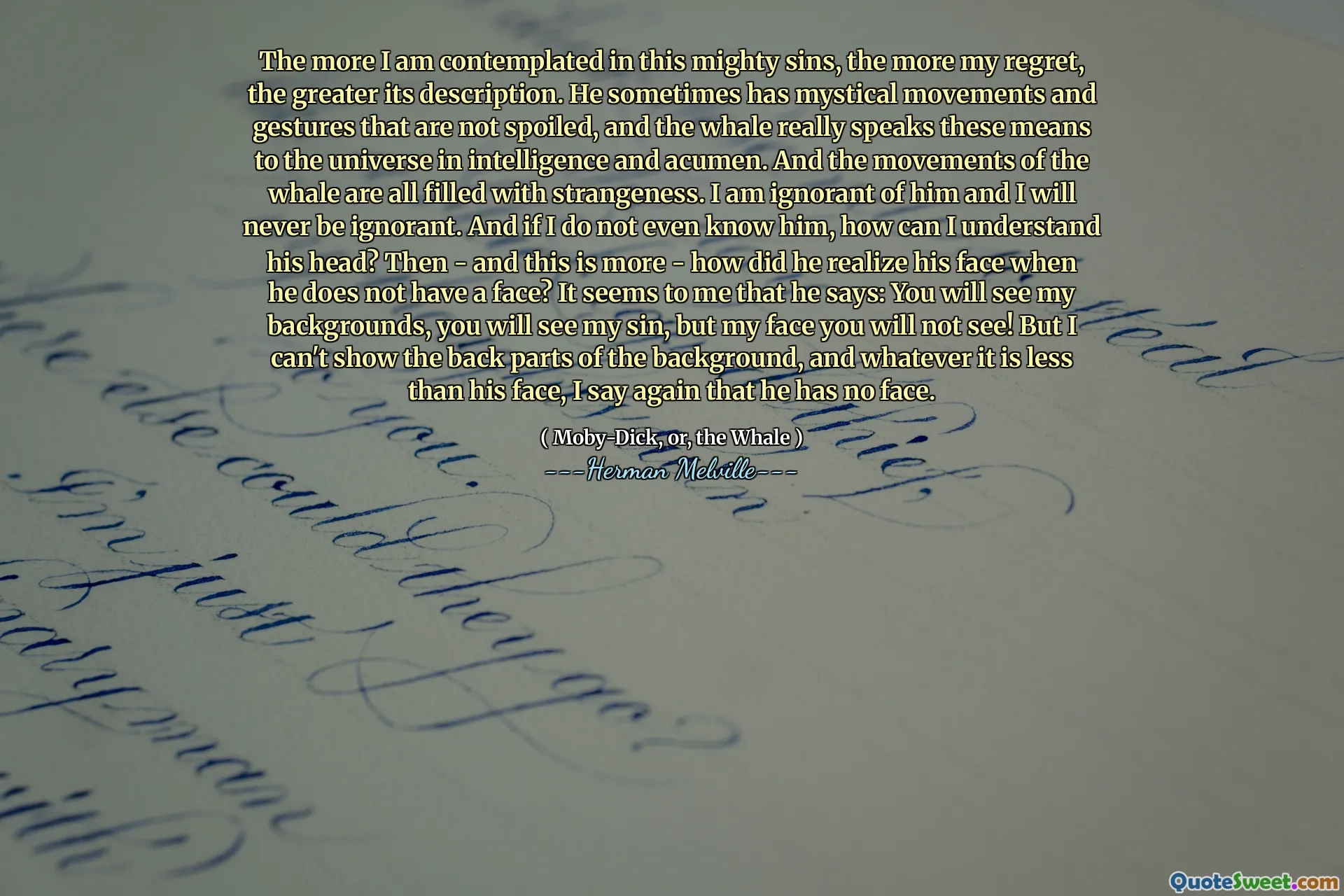
The more I am contemplated in this mighty sins, the more my regret, the greater its description. He sometimes has mystical movements and gestures that are not spoiled, and the whale really speaks these means to the universe in intelligence and acumen. And the movements of the whale are all filled with strangeness. I am ignorant of him and I will never be ignorant. And if I do not even know him, how can I understand his head? Then - and this is more - how did he realize his face when he does not have a face? It seems to me that he says: You will see my backgrounds, you will see my sin, but my face you will not see! But I can't show the back parts of the background, and whatever it is less than his face, I say again that he has no face.
The quote reflects a deep sense of regret and contemplation regarding the nature of sin and the mysteriousness of existence, particularly embodied by the whale. The narrator expresses an evolving understanding of the whale, perceiving it as a being that communicates in its own unique way through movements that are both mystical and strange. This complexity leads to an acknowledgment of ignorance, as the narrator grapples with the profound nature of understanding an entity so vast and enigmatic.
Moreover, the narrator's struggle with comprehending the whale's essence is highlighted by the idea that while he can glimpse its sins and background, the true identity, represented by a "face," remains concealed. This metaphor of the whale lacking a face underscores the limitations of human understanding and the gulf that exists between humanity and the vastness of nature or existence. Ultimately, the passage explores themes of perception, the unknown, and the sense of wonder that comes with grappling with such grand concepts.
